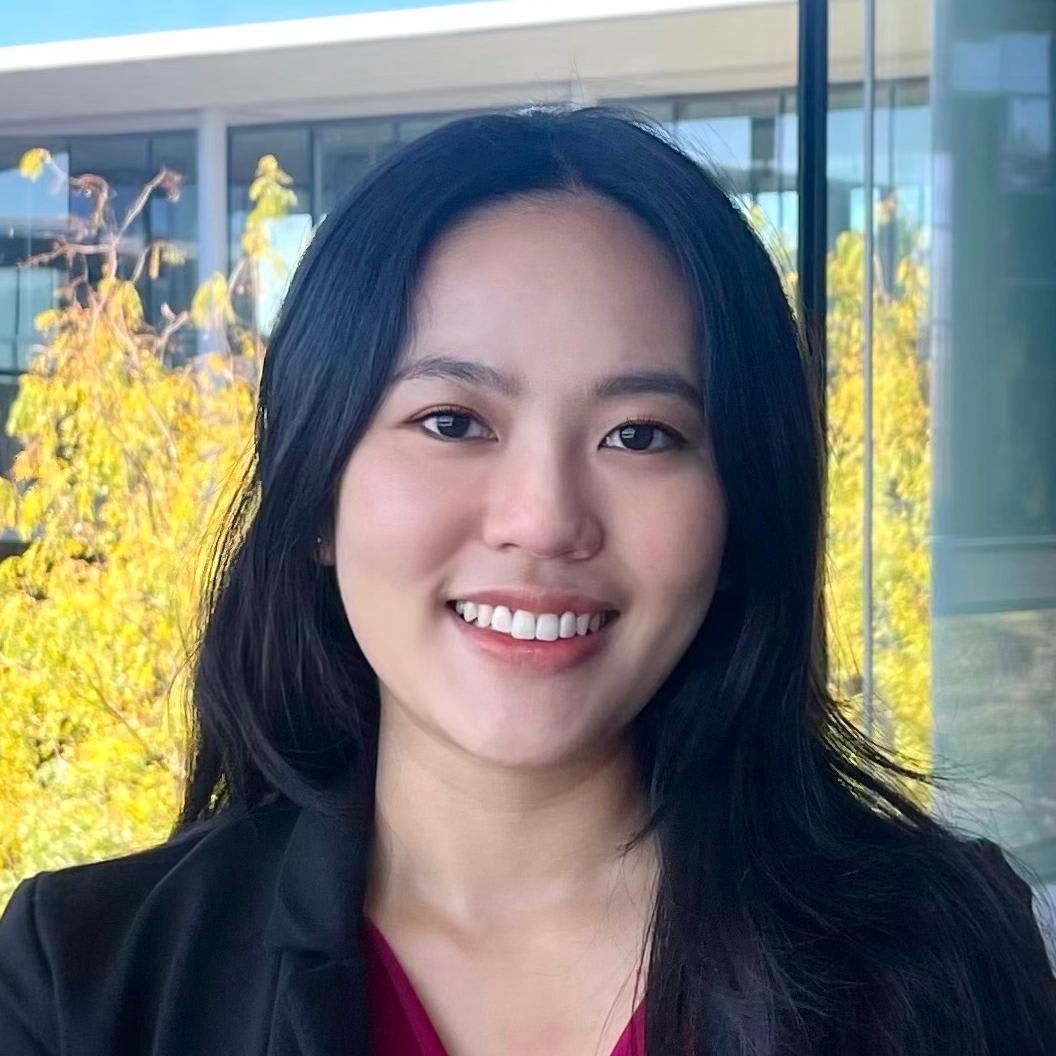Bringing LPR Data to Intercom Calls, Plus Unique Phone Numbers and E911 Calling
Excellent call quality, multiple form factors, and flexible call receiving are just a few reasons our intercom has become a favorite among customers. While intercoms are often installed at front doors to greet visitors, their use cases extend far beyond traditional entry points.
From vehicle gates at warehouses to third-party blue light stations in colleges or hospital campuses, organizations are getting creative with how and where they deploy our intercoms.
To support these broader applications, we’re excited to announce two powerful updates that make our intercom even more effective for vehicle gate entry and emergency response scenarios.
LPR Data in Intercom Calls
Our intercoms already offer facial recognition and person-of-interest alerts during calls—but now, we’re taking this a step further by integrating license plate recognition (LPR) into the call experience.
When organizations pair an LPR-enabled Verkada bullet camera with their intercom, they can now see license plate data for vehicles driving up to their intercom.
Specifically, during intercom calls, call receivers will see in-call notifications if a vehicle has a flagged license plate.
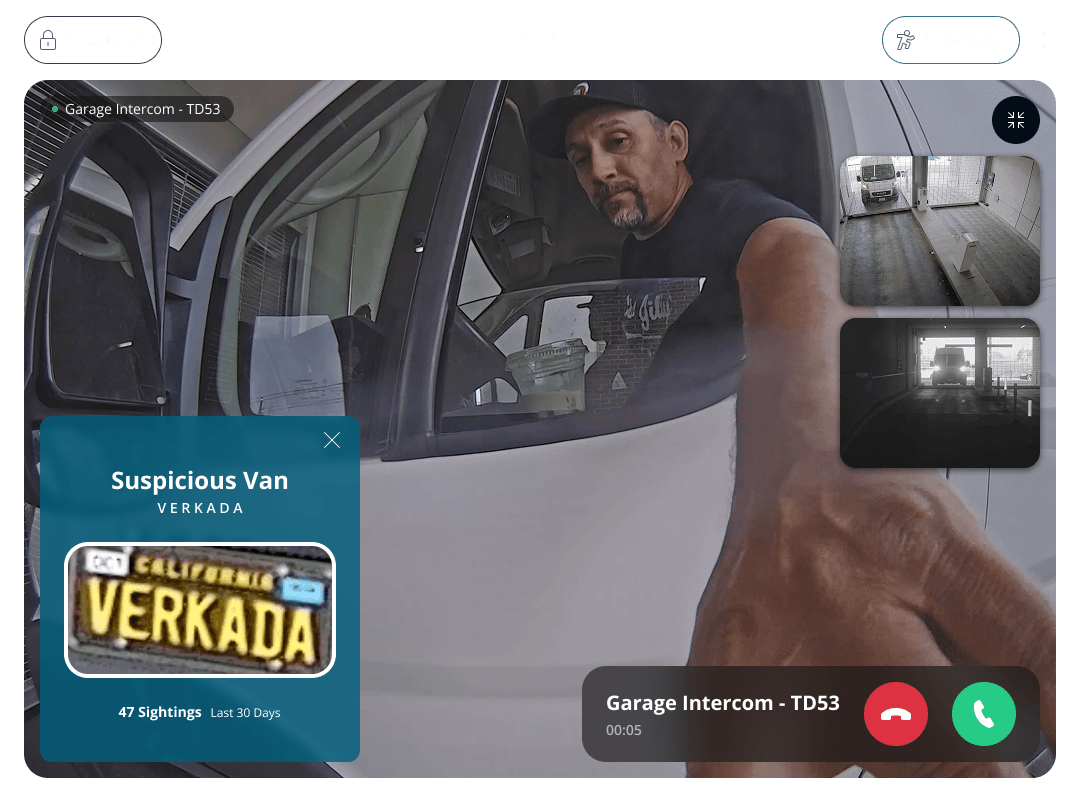
Second, in Intercom Events, security teams will find license plates included as part of the call summary.
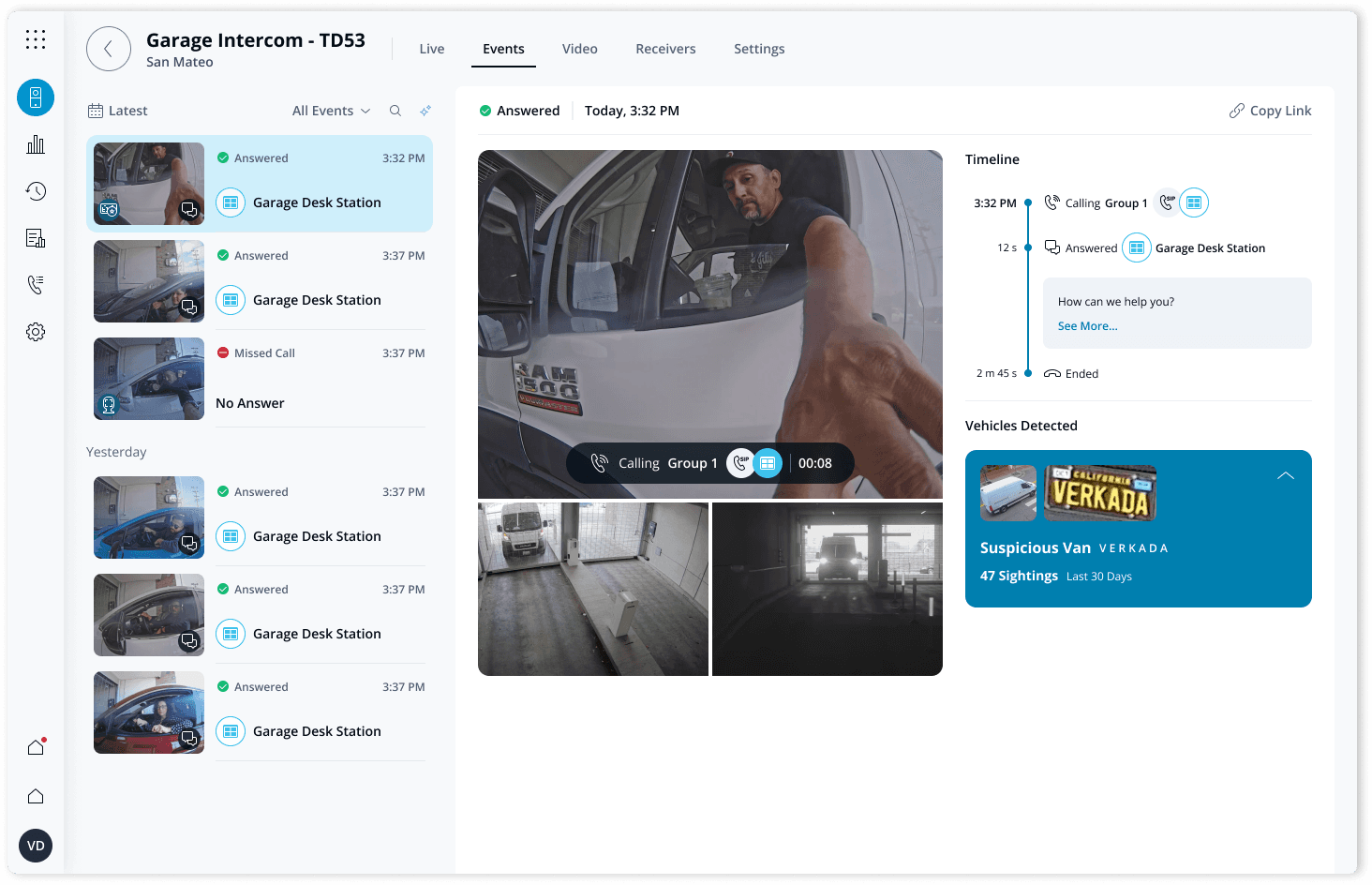
And lastly, security teams can also search for specific license plates or filter call events for “License Plate of Interest” matches to help streamline reviews and investigations.
Whether it’s a car driving into a garage or a delivery truck at a gate, organizations can now appropriately screen vehicles of interest and efficiently review call events.
Unique Phone Numbers
Today, organizations can receive intercom calls in many ways, including direct phone calls to their mobile device. Until now, all such calls would only originate from the same California-based phone number.
Now, we are excited to share that each intercom can have a unique, local phone number associated with its outgoing calls. This unlocks several key benefits. First, organizations who see intercom calls coming from a local number are less likely to dismiss them as spam. Second, organizations can more easily identify which intercom is calling when each has its own number. Third, organizations can also initiate a talkdown to specific intercoms by dialing that intercom’s unique phone number from their phone.
Organizations can set up a unique phone number in the ‘Settings’ tab of each intercom.
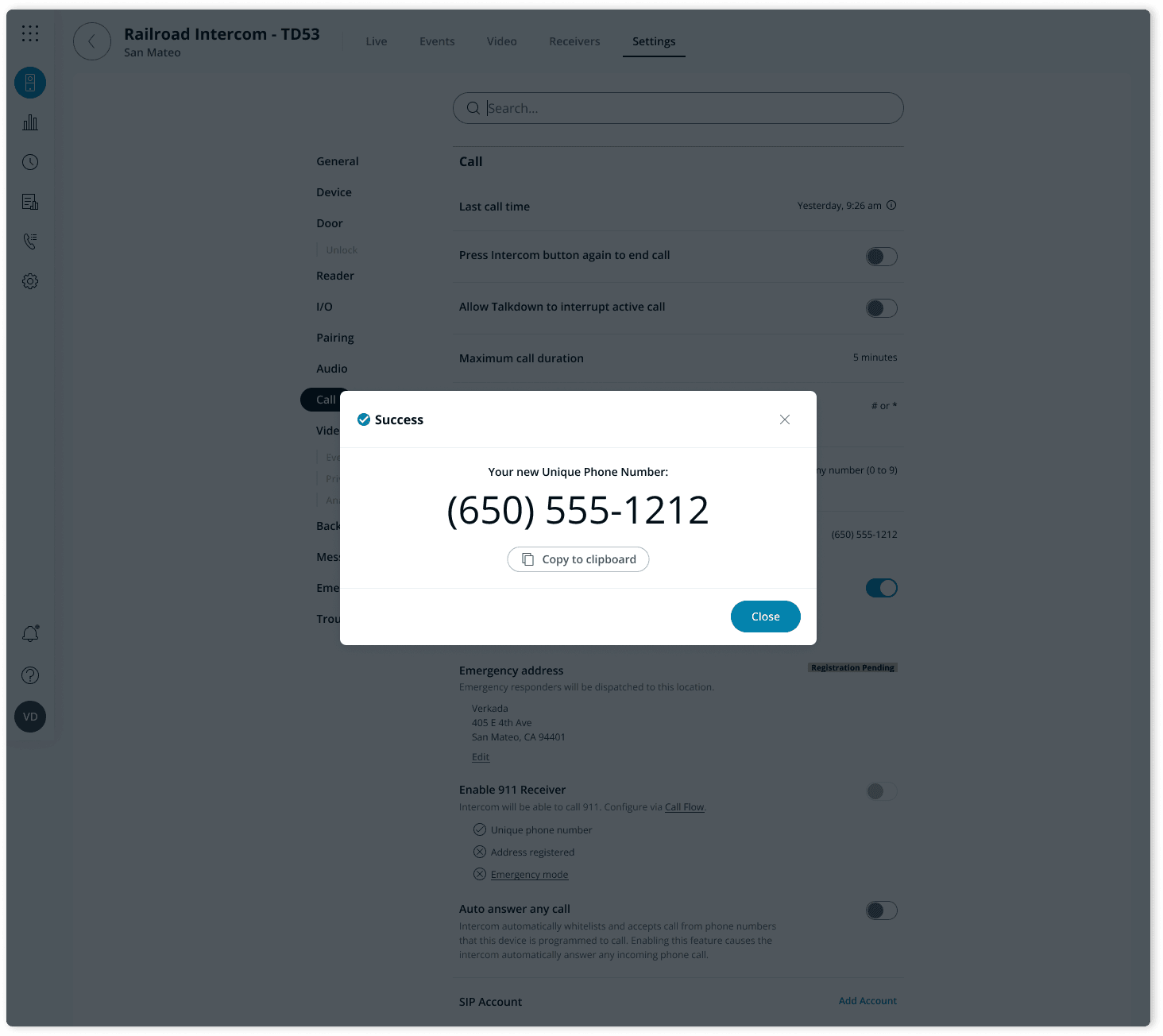
E911 Calling
With the unique phone number update, intercoms used for emergency calling – such as in blue light deployments – can now be configured to dial 911 directly in the US. As part of the configuration, organizations must specify an emergency address for each intercom. From here, a unique phone number with a corresponding area code will be auto-generated. With this set-up, calls can now be properly routed to local emergency services. And, because we support E911 calling, outgoing calls will automatically share the phone number and corresponding address to the 911 dispatcher answering the call.
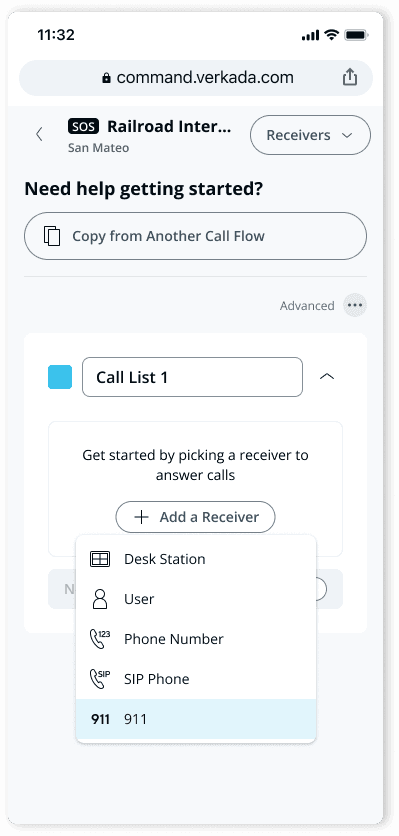
Traditionally, routing intercom calls to 911 requires a complicated set-up with a third-party VOIP system. With this update, organizations can instead set up 911 routing for intercoms configured for emergencies. They can do so in seconds by simply adding E911 to an intercom’s call flow with a few clicks.
These updates mark a significant step forward in our commitment to security and efficiency in incident response times. Whether managing vehicle access or supporting rapid response, our intercom system continues to evolve to meet the needs of modern organizations.
Availability
The addition of license plates to the intercom experience will be available in Command on May 15, 2025 for all users across regions. Unique phone numbers will be available to organizations operating in USA starting May 15, 2025. Unique phone numbers can be applied to our TD52, TD33, TD53, and TD63 models, while enabling E911 as a receiver is only available in the USA with the TD52 and TD53 intercom models.
Disclaimer: Verkada makes no representations or warranties regarding accessibility of emergency communication services or tools, and is not liable for accessibility compliance or functionality issues arising from customer’s feature configurations. In addition, Verkada makes no representations or warranties that the feature will be error free, and Verkada disclaims all liability for any harm or damages which may result from the feature’s failure to function properly.






